Ask The Best And Brightest: Free Parking?
Who pays for free parking? Everyone but the motorist.
That’s the thesis of UCLA professor of urban planning, Daniel Shoup’s new book The High Cost of Free Parking. Marginal Revolution blogger Tyler Cowen explains Shoup’s line of thinking in an NYT Op-Ed.
Many suburbanites take free parking for granted, whether it’s in the lot of a big-box store or at home in the driveway. Yet the presence of so many parking spaces is an artifact of regulation and serves as a powerful subsidy to cars and car trips. Legally mandated parking lowers the market price of parking spaces, often to zero. Zoning and development restrictions often require a large number of parking spaces attached to a store or a smaller number of spaces attached to a house or apartment block.
If developers were allowed to face directly the high land costs of providing so much parking, the number of spaces would be a result of a careful economic calculation rather than a matter of satisfying a legal requirement. Parking would be scarcer, and more likely to have a price — or a higher one than it does now — and people would be more careful about when and where they drove.
The subsidies are largely invisible to drivers who park their cars — and thus free or cheap parking spaces feel like natural outcomes of the market, or perhaps even an entitlement. Yet the law is allocating this land rather than letting market prices adjudicate whether we need more parking, and whether that parking should be free. We end up overusing land for cars — and overusing cars too. You don’t have to hate sprawl, or automobiles, to want to stop subsidizing that way of life.
Cowen points to San Francisco’s market-based parking meters as one potential solution for the waste and stealth subsidies of automotive overuse caused by free parking (which Shoup reckons amounts to a staggering $127b annual subsidy). But will market-based parking pricing be any more politically palatable than other green behavior-modification efforts like, say, a gas tax? On the other hand, if municipalities can get rid of speed cameras due to increased parking revenue, perhaps the compromise might be more worth it to motorists. Either way, one gets the feeling that the free parking phenomenon isn’t going to disappear overnight.
More by Edward Niedermeyer
Latest Car Reviews
Read moreLatest Product Reviews
Read moreRecent Comments
- Probert They already have hybrids, but these won't ever be them as they are built on the modular E-GMP skateboard.
- Justin You guys still looking for that sportbak? I just saw one on the Facebook marketplace in Arizona
- 28-Cars-Later I cannot remember what happens now, but there are whiteblocks in this period which develop a "tick" like sound which indicates they are toast (maybe head gasket?). Ten or so years ago I looked at an '03 or '04 S60 (I forget why) and I brought my Volvo indy along to tell me if it was worth my time - it ticked and that's when I learned this. This XC90 is probably worth about $300 as it sits, not kidding, and it will cost you conservatively $2500 for an engine swap (all the ones I see on car-part.com have north of 130K miles starting at $1,100 and that's not including freight to a shop, shop labor, other internals to do such as timing belt while engine out etc).
- 28-Cars-Later Ford reported it lost $132,000 for each of its 10,000 electric vehicles sold in the first quarter of 2024, according to CNN. The sales were down 20 percent from the first quarter of 2023 and would “drag down earnings for the company overall.”The losses include “hundreds of millions being spent on research and development of the next generation of EVs for Ford. Those investments are years away from paying off.” [if they ever are recouped] Ford is the only major carmaker breaking out EV numbers by themselves. But other marques likely suffer similar losses. https://www.zerohedge.com/political/fords-120000-loss-vehicle-shows-california-ev-goals-are-impossible Given these facts, how did Tesla ever produce anything in volume let alone profit?
- AZFelix Let's forego all of this dilly-dallying with autonomous cars and cut right to the chase and the only real solution.



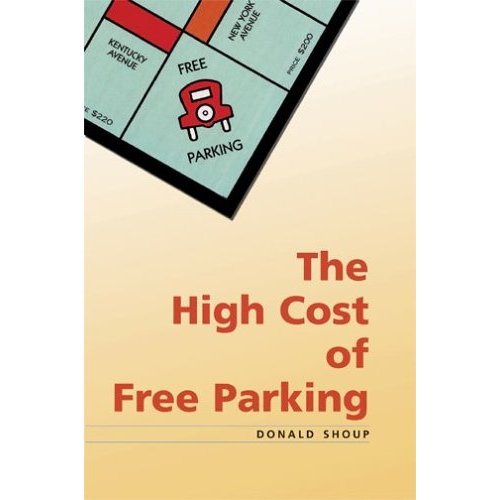















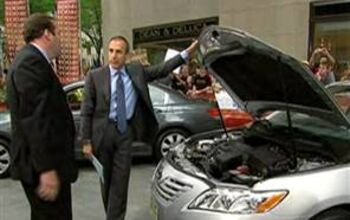
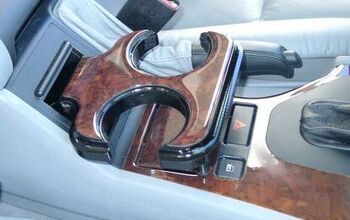
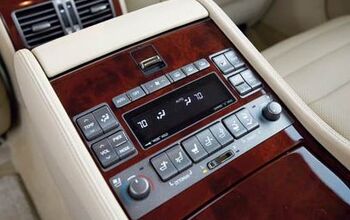
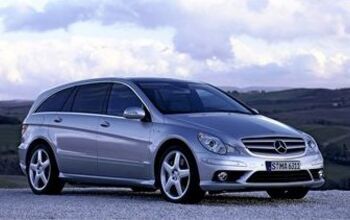











Comments
Join the conversation
This is a very interesting discussion. I'll enjoy reading Mr. (Dr?) Shoup's book. Parking has been a fascination for me after living in Tokyo for more 5 years. There, I had to have my parking space measured before I was allowed to buy a car. I spent a lot of time on public transportation in that city. Shopping in Tokyo was a completely different thing than in the states. You shopped frequently and purchased small amounts of food. Anything heavier than 5 pounds was delivered to your home- you didn't carry it. The train stations were generally in the middle of shopping centers. I now live in Dallas, where public transportation just isn't going to work for anything except commuting to work or attending mass public events like theater,concerts or professional sports. Simply put, Dallas wouldn't exist if not for the automobile. No one would build a city here. It's been over 100 degrees (heat index of 113 yesterday) for most of a month now. I'm not going to wait for a bus to go shopping, nor am I going to walk anywhere. My wife's office is 6 miles from our home. There's a bus stop at her office and a bus stop less than 1/4 mile from our house. However, it would take her two bus transfers and more than an hour to get to work, and it would cost more for her daily commute via bus than it does for the fuel on her car. (She'd still have to have a car so you can't include the sunk cost of the car nor insurance). Another observation is that my hometown (home city?)in the Northeast managed to decisively kill its downtown but banning cars and making a park/ arts area of the main downtown shopping area. Most urban planners agree: http://www.mapc.org/resources/parking-toolkit/parking-issues-questions/not-enough-parking Now for some mischief: What percentage of the United States is handicapped? What percentage of parking spaces are solely dedicated to handicapped drivers? What percentage of handicapped parking spaces are generally occupied? I'd be interested in the ratio of handicapped parking spaces to handicapped individuals in a city, and what percentage of handicapped slots are "wasted" by total nonuse on any given day. You may now flame me at will. I'm ready.
Just paid 50 bucks a day for parking in San Francisco hotel on top of everything. Paying for parking is so ridiculous.